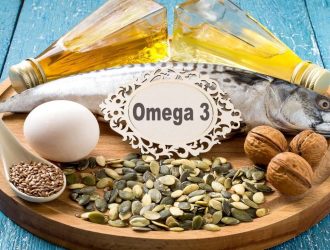
There is a viewpoint that synthetic vitamins should not be taken on a regular basis for increasing your health.
If you’re taking them for a detoxification program, that’s something completely different, but taking them on a regular basis month after month, after month could create some problems. So we’re going to talk about why.
Contents
Are synthetic vitamins the same as natural vitamins?
And the reason is because 98 percent of all vitamins sold are made synthetically. The question is, are they the same as natural vitamins? The answer is no, because just it’s similar does not make it identically the same. That’s like saying an artificial flavoring is exactly the same as a natural flavor. It’s not 90 percent of all the ascorbic acid or synthetic version of vitamin C comes from China.
The regulation of what you’re getting might not be at the standards that you really need as well. Especially, since vitamin C is made from GMO corn with other chemicals other solvents (learn more how you can get up to 20 times more vitamin E, up to five times as much vitamin D, up to 10 times the vitamin A)
What is the best way to get nutrients?
Ideally, the best way to get your nutrients is through food – nutrient dense foods. But it’s very difficult to find foods with all the nutrients that you need. The other thing to know is that your own microbes in your gut make vitamins.
The problems with synthetic vitamins
The actual form of a synthetic vitamin versus a natural vitamin is different. We don’t get into the complexities of synthetic vitamins, but when you have synthetic vitamins some of that vitamin is in a different form.
So when it goes to your body like a lock and a key, it’s not going to fit. As a good portion of that vitamin is going to be wasted, so the absorption rate or the bioavailability of the synthetic vitamin is lower. And this is why you see the synthetic vitamins in massive amounts like 11 000 percent of your RDAs.
So a lot of that’s going to be passing out through your urine unless it’s fat soluble. With synthetic vitamins you don’t have all the cofactors that normally come with a vitamin in nature.
Vitamins and nature are complexes and they have a lot of helper molecules. They don’t come in this industrial isolated fractionated part. They come in this synergistic complexity of a lot of different parts which includes. Like they might have a trace mineral part of that vitamin, they’ll have other vitamins that help the absorption. One reason for this is because let’s just take antioxidants.
When an antioxidant donates its electron to a free radical which is basically something that has that’s unpaired. In other words, it it’s missing an electron. So the antioxidant donates this electron to make this free radical stable.
That antioxidant becomes a free radical, because now it’s missing an electron.
So it has to borrow electron from a friend or neighbor antioxidant. If you don’t have a network of antioxidants you can basically turn your antioxidants into free radicals. This is why mother nature always comes in a group of antioxidants and associated helper molecules.
The other really big problem with the synthetic vitamins is that they have residual traces of some of the solvents, chemical compounds, like chloroform petroleum, acetate, glyphosate, which is an herbicide, and even hexane which is a solvent. But in nature you’re not going to find that at all.
The thing with vitamins is they come in both fat soluble forms and water soluble forms. So if you took a high amount of a water soluble synthetic vitamin, the extra would be eliminated through your kidneys. But if it’s a fat soluble vitamin it’s not going to be eliminated very easily. It’s going to get stuck in your fat cells. This is why there’s some pretty major side effects, when you take synthetic fat-soluble vitamins.
So if a mother is taking synthetic vitamin A, there’s a risk for that child of having a birth defect. There’s some data on synthetic vitamin E and premature death and the folic acid which is different than the natural version. Folate increasing your risk of getting cancer, when you have vitamin C (scorpic acid).
There’s a study, that shows that it decreases the muscle mitochondria biogenesis, when you’re going to make less mitochondria and have less training efficiency.
But will say that there’s also some positive benefits of taking synthetic vitamin C in the form of ascorbate injected for cancer. It’s not a recommendation, but there’s just some interesting data to show that it can help kill cancer cells, because it can turn into hydrogen peroxide in your blood and kill the cancer. This is just information you that there is studies that show there’s benefits of synthetic vitamins. But even folic acid in prenatals can decrease the risk of getting neural tube defects. So that would be one benefit, but there are side effects of increasing risk for cancer (learn more about how to reduce Cancer Risk Down to ZERO). So there’s pros and cons.
There’s way more pros when you do the natural whole food concentrates. With synthetic vitamins they add a lot of additional things in there. They’ll add additives, preservatives, flavorings, colorings.
A synthetic vitamin vs. a natural vitamin
If we read you the ingredient list on probably one of the most popular highest selling synthetic vitamins on the market.
It has modified corn starch, it’s unknown why they put modified corn starch in vitamin maltodextrin, which is sugar; polydextrose ascorbic acid, vitamin A acetate which is synthetic. Then they add yellow six leg as a coloring agent.
Then some of the minerals are in oxide forms which are not the best absorbed minerals. If possibly you want the plant-based minerals or minerals that are absorbed a lot better, then they add calcium carbonate, which is basically rocks and ascorbic acid.
This is an example of vitamin C ingredients of an ordinary person: organic freeze-dried acerola cherry fruit, organic freeze-dried strawberry fruit, organic freeze-dried acai berry fruit, organic freeze-dried blueberry fruit .
Let’s talk about Keto energy product: vitamin A from carrots, vitamin C from blueberry, cranberry and strawberry, vitamin D from shiitake mushrooms, vitamin E from tomatoes, vitamin K1 from spinach, Vitamin b2 from broccoli.
You see especially with the “B” vitamins like vitamin B1, B2, they make it from coal tar, acetone and ammonia. Versus the natural version can come from garlic or nutritional yeast, vitamin B2 could be from holy basil, vitamin A could be from cod liver oil.
But the problem with natural vitamins is – it’s more difficult to extract, it’s more expensive, but you need a lot less of it, because it’s way more bioavailable and it has a lot less side effects.
How to identify a synthetic supplement?
One way to identify synthetic vitamins is to look at the RDAs and the back of the label (learn more about 5 Ways You Are Being Tricked with Misleading Food labels). If it’s in very high amounts, then you know it’s probably synthetic.
So, anyway, there is some basic information about the difference between synthetic and natural vitamins.






I worked for a Salk researcher 20 years ago who was analyzing by HPLC the antioxidants in people’s blood. First he instructed his group to take no vitamins for a month and we got a baseline. Then they took the specific brand of commercial multivitamin for a month and we retested them. The results were rather shocking. Less the 5% increase was average but was worse is a significant percentage of people actually LOST antioxidants, they were worse off. We tested food based vitamins and the results were much better and no one had a decrease in antioxidant potential. However I will say, liquid vitamins did better than pills. All our studies involved about 50 people so this wasn’t a huge sample size. Older people has less absorption than younger. We took a dietary survey of all participants and those with better diets had far more benefits from good quality vitamins than those who had poor diets. I learned that you can’t have vitamins as a stop gap for a crappy diet, more as an enhancement of a good one.
This research changed my perspective and I tossed out all my grocery store vitamins. I only use concentrated superfoods and key targets like minerals and D3K2.